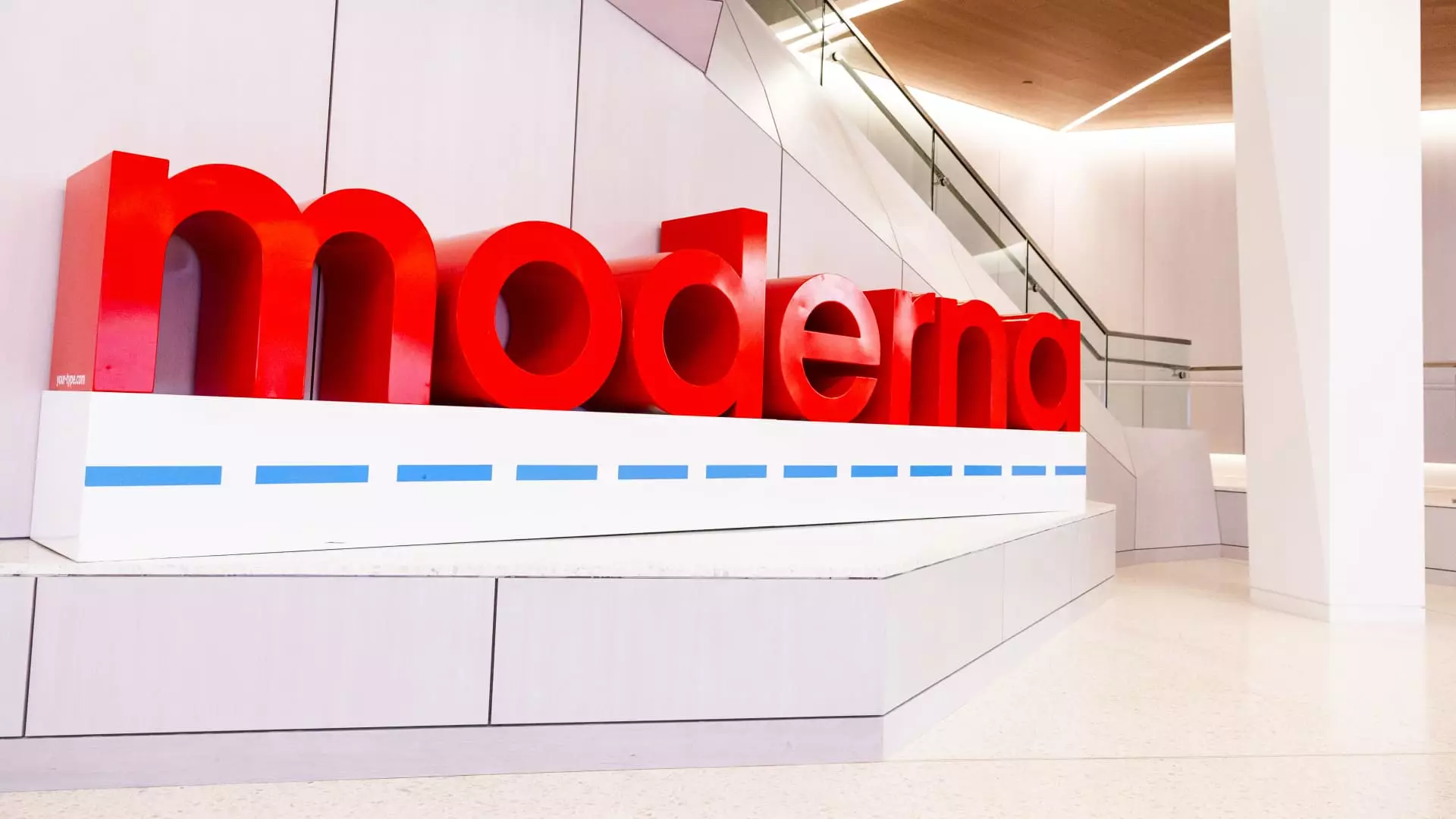The biopharmaceutical sector is no stranger to the ebbs and flows of market demand, particularly within the rapidly evolving landscape of vaccine development and distribution. Recently, Moderna has made headlines by revising its 2025 sales forecast downwards by approximately $1 billion. This adjustment reflects ongoing strategic efforts to mitigate costs while seeking avenues for revenue expansion. The combination of a decreasing share in the COVID-19 vaccine market and anticipated declines in vaccination rates raises questions about the company’s future viability.
Moderna now projects its 2025 revenue to oscillate between $1.5 billion to $2.5 billion, a significant downturn from the previously stated estimates of $2.5 billion to $3.5 billion. Notably, a considerable portion of this revenue is expected in the latter half of the year, bolstered primarily by the company’s COVID-19 vaccine and its recently launched respiratory syncytial virus (RSV) vaccine. However, several uncertainties loom large, impacting the company’s outlook.
Moderna’s Chief Financial Officer, Jamey Mock, pointed to a mix of factors currently influencing their sales expectations. The first critical issue to consider is the intensifying competition in the COVID-19 vaccine arena. Reports indicate that Moderna’s retail market share for COVID shots has dipped from 48% to 40% between 2023 and the close of 2024, suggesting a competitive landscape that is becoming increasingly aggressive. Additionally, agreements such as the recent partnership between Sanofi and Novavax to co-commercialize Novavax’s COVID vaccine may further encroach on Moderna’s already diminishing market share.
Another major challenge outlined by Mock is the decline in vaccination uptake, which showed a notable decrease of approximately 7% in the U.S. retail market during the fall of 2024, in stark contrast to the previous year. Such trends raise serious questions regarding the overall demand for COVID-19 vaccines and, consequently, affect Moderna’s sales forecasts. As the public becomes increasingly fatigued with repeated vaccinations, this sharp downward trend in demand could have severe ramifications not only for Moderna but also for the broader pharmaceutical industry.
Further complicating Moderna’s forecast are concerns regarding manufacturing contracts with various countries and the unpredictability surrounding recommendations from the Centers for Disease Control and Prevention on RSV revaccination. These factors suggest that external pressures are at play, which could significantly alter the company’s financial landscape in the near term.
To counterbalance these adverse trends, Moderna has announced a plan to cut 2025 cash costs by $1 billion, with additional expected reductions of $500 million in 2026. According to Mock, these cost-saving measures are essential as the company strives to preserve its cash reserves, preparing for a leanness that may be particularly crucial amid decreased revenues.
However, prioritizing cost management alone may not be enough to ensure long-term sustainability. While Moderna must manage its financial health prudently, it also needs to focus on innovation and product diversification. The company aims to secure ten new product approvals within the next three years, including a combination shot targeting both COVID-19 and seasonal influenza, alongside advanced iterations of its existing vaccines.
Moderna’s commitment to its messenger RNA platform (which has underpinned its COVID vaccine and RSV shot) positions it uniquely within the biotech landscape. The projected three approvals in 2025 signal a glimmer of hope, emphasizing the company’s dedication to expanding its product pipeline. Should these new innovations meet with regulatory approval and public acceptance, they could well bolster Moderna’s revenue in the years to come.
Nevertheless, the critical task lies in re-establishing trust and interest among the public regarding vaccination. As the COVID-19 pandemic wanes, effectively communicating the value of vaccination and securing the necessary market position amidst stiff competition will be crucial for any successful turnaround.
As Moderna ventures into an uncertain future, the company’s latest financial guidance signals both challenges and opportunities. While the anticipated headwinds may present obstacles in the immediate term, innovations in vaccine development and strategic cost-management could equip Moderna to adapt in a rapidly changing environment. Only time will tell if the company can navigate this tumultuous landscape and emerge with a robust and diversified portfolio that meets the evolving needs of public health.


Leave a Reply